Leipheimer gets wind blown
Having already finished twice in the top 10, Gerolsteiner co-leader Levi Leipheimer is fixated on a...
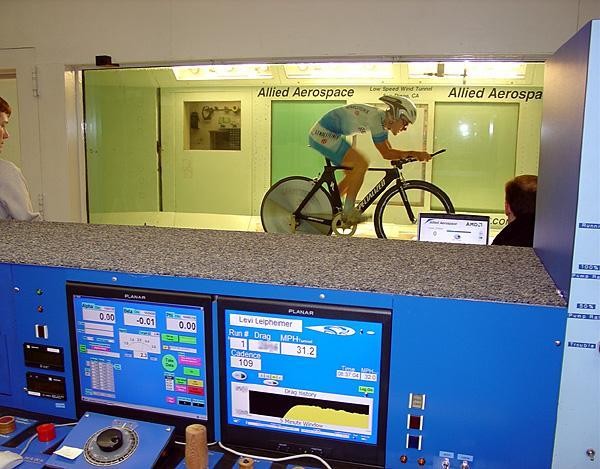
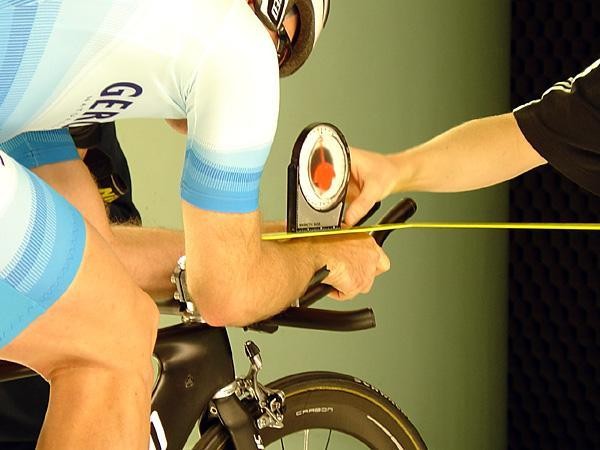
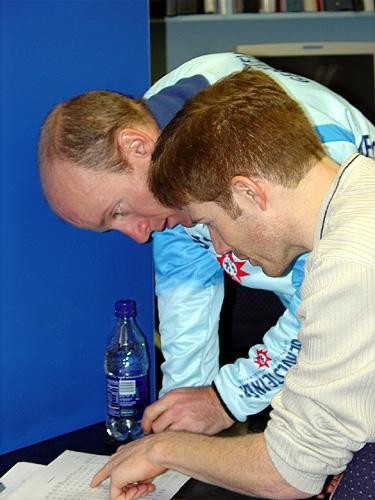
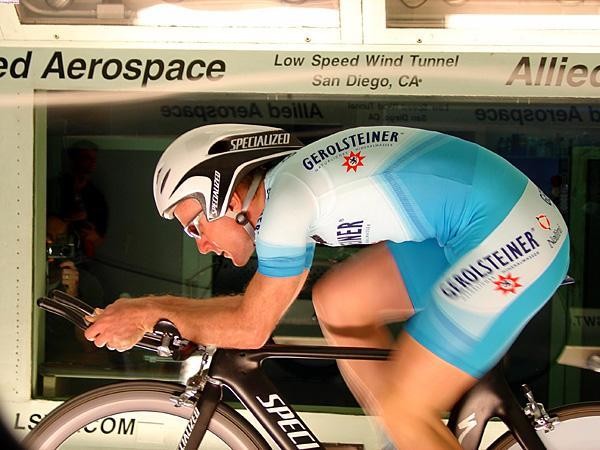




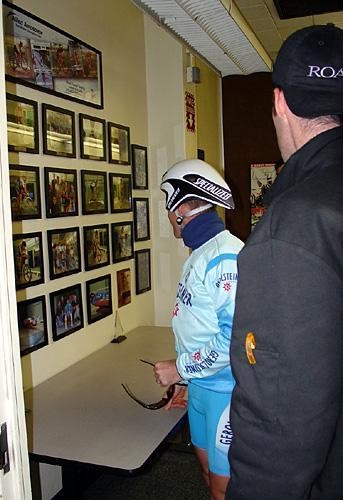
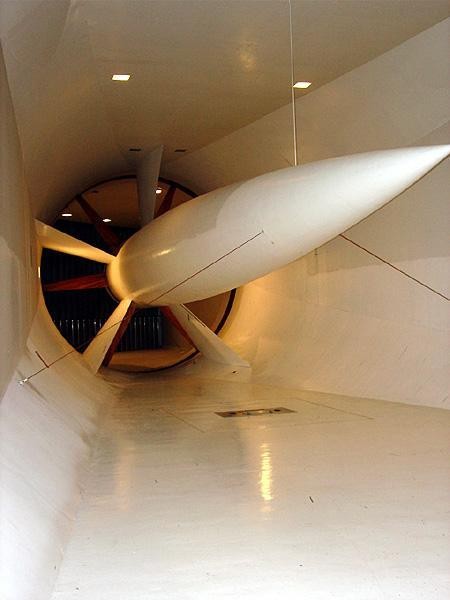
Tech feature - February 3, 2005
Gerolsteiner leader undergoes wind tunnel testing
Having already finished twice in the top 10, Gerolsteiner co-leader Levi Leipheimer is fixated on a top 5 finish in this year's Tour de France. With fewer mountaintop finishes this year, the time gaps may be smaller than we've seen the past few years. That doesn't mean it will be any easier, as Leipheimer pointed out, "The Tour is always the Tour. The riders make the race." This affable pro is clearly focused on doing his part to make this year's Grand Boucle as exciting as possible.
Like an increasing number of other Grand Tour favourites, Leipheimer is taking a scientific approach to his preparation. He recently spent half a day in the Allied Aerospace Low Speed Wind Tunnel (San Diego, California) to optimise his time trial position and invited Cyclingnews to observe the process. After all, there's no sense "giving away" a minute in a 55 km time trial.
Allied Aerospace personnel have nearly 200 years of combined experience in aerospace test engineering and related fields. They put this expertise to use when they designed, fabricated and calibrated a balance system specifically for measuring the drag forces affecting a cyclist at racing speed. Although cyclists, triathletes, luge riders etc. still represent a small percentage of Allied's tunnel time, an increasing number of elite and serious amateur athletes are availing themselves of this world-class facility. In fact, Lance Armstrong and other members of the Discovery Channel team, as well as Floyd Landis (Phonak) have each recently tested in the facility.
Assisted by Kraig Willett (biketechreview.com), his brother Kirk Willett (ex-professional rider and former director of Prime Alliance), and Loren Stowe (an engineering colleague of Kraig's), Levi took the opportunity to test a number of positions and collect loads of data.
Most cyclists understand that when cycling on anything less than a moderate grade, a tremendous amount of power is used to overcome aerodynamic drag. Interestingly, while few serious time-trialists question spending $US2,000 on a set of aero wheels or an aero frame, most shudder when confronted with spending half that amount on an hour of tunnel testing because they think that getting aero is as simple as imitating their favourite time-trial star. But as Allied Aerospace engineer David Sanford pointed out, "Many aspects of optimising power to drag can only truly be assessed in a wind tunnel."
The latest race content, interviews, features, reviews and expert buying guides, direct to your inbox!
Forearm angle and elbow width are two areas in particular where you need the precision of a wind tunnel to discern the optimal position. That is, narrow and flat doesn't work for everyone. Some riders are better off with their elbows slightly wider. You need the precision of a wind tunnel to detect these differences.
Does that mean the differences are so slight as to have a minimal impact on performance? Absolutely not. At 50 kilometres per hour, reducing effective frontal area by only 4% can save over a half-minute in a 40 km time trial. Said another way, a rider could achieve the same time while averaging about 15 fewer watts. As Lance Armstrong wrote, every second counts.
Leipheimer and his testing crew made good use of the tunnel and now have a lot of data to scour. Commenting on his experience, he told Cyclingnews, "I was impressed. It's great to see the numbers and get the data...Of course, the trick will be to see how well I can replicate [the optimised position] on the road..."
We'll all anxiously be watching the first stage (19 km TT) and stage 20 (55 km TT) of this year's Tour de France to see how well Leipheimer and the other contenders fare.
Related story: Levi Leipheimer interview: Top five or bust.